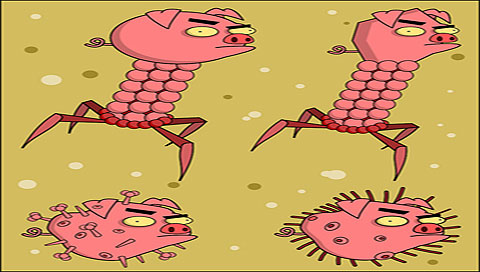 Skimming the frontier of bioethics, in what could be described as a tawdry biological game show, scientists have developed classic games such as pinball into ‘Biotic Pinball PONG DONG’ – using live organisms in a world first.
Skimming the frontier of bioethics, in what could be described as a tawdry biological game show, scientists have developed classic games such as pinball into ‘Biotic Pinball PONG DONG’ – using live organisms in a world first.
In single-celled ‘Tron’ style, Stamford researcher Ingmar Reidel-Kruse has developed the “biotic games” to encourage the public to experiment on organisms via virtual entertainment.
Here a player’s actions influence the behaviour of an organism in real time, which Kruse says will encourage people to learn about biology – all while they flick an organic ‘pinball’ towards a garish, point scoring pit.
Kruse says only single-celled organisms, paramecia, are used in the games, excluding “higher-level organisms”. He adds when multiplayers are an option and a line needs to be drawn, the games may incite discussions on bioethics – which of course furthers education.
Another classic game experimented upon was Pac-Man, renamed ‘PACmecium’. Here a camera sends live images to a screen, while the game board is superimposed over the organism. A microprocessor then follows the organism’s movements and keeps the score.
How does the paramecium move where you want it to? The player controls an electrical field, which ‘guides’ (or forces) it to eat virtual yeast cells and avoid giant killer pac-fish. Involuntary single-celled psychiatry for kicks? Or maybe an attempt at advertising biology to those with a short attention span.
In any case, Dr Andrew Watermelon, head of the Scandinavian Single-celled Scrutinising Society (SSSS), is concerned over the development. He says single-celled organisms should not be subject to such “reckless experimentation”, as a microscopic uprising of jet-whopping proportions could occur.
He says these things are very old, know the terrain, and are riddled in the terrestrial and atmospheric realms. He adds Gaia could soon be fondled in all the wrong places, leading to one gaping great Godzilla of a geological disturbance.